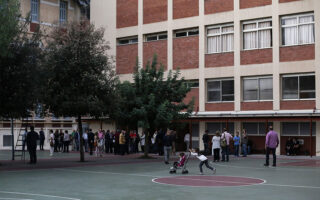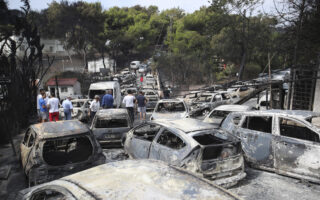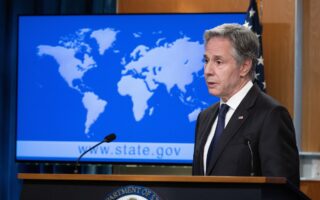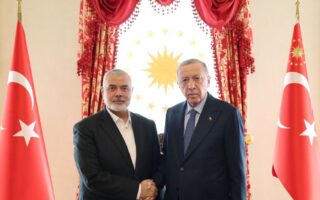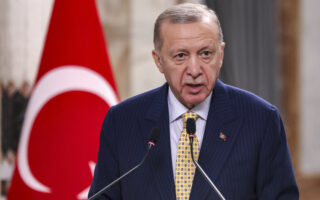Young people, life and our debt
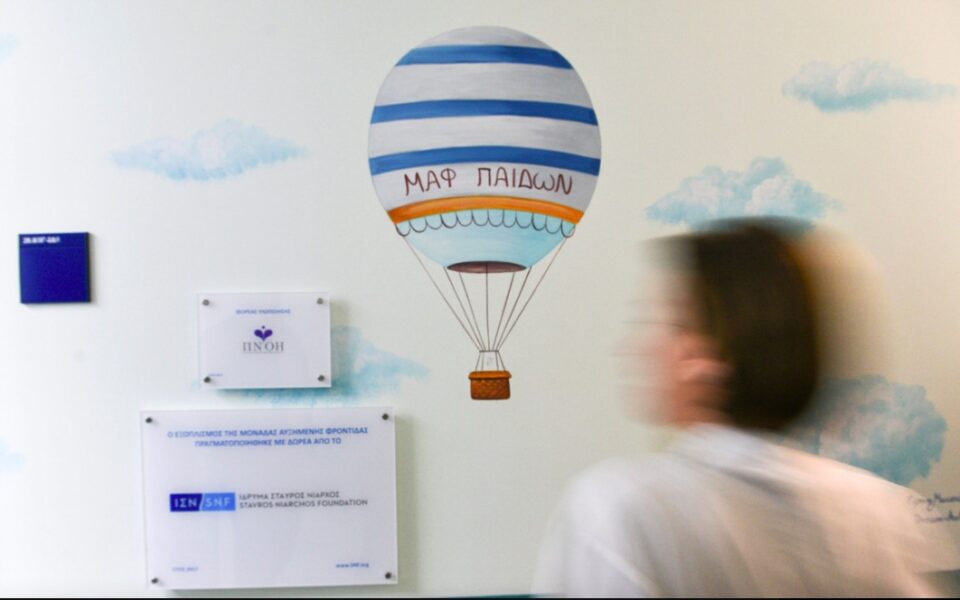
During the last weekend of March, we had the opportunity and the luxury to attend two events held in collaboration with the Municipality of Delphi, at the Kyriakopoulio Cultural Center of Itea. The first one, on the initiative of the chair of the Parents and Guardians Association of Galaxidi High School, Maria Mardaki, on the subject of violence and delinquency among young people, took place on Saturday, March 30. The second, on the initiative of the chair of the Fokida Branch of the Hellenic Cancer Society, Georgia Kapareli, on the subject of cancer in children, was held on Sunday, March 31.
First of all, as a citizen, as a mother and as a teacher, I would like to congratulate the organizers of the two events, because they were really meaningful, useful and extremely educational. In a word, I was left totally overwhelmed. And the guest speakers on both occasions were literally elite.
There are two issues that I wish to highlight in this article, for the local community and for the readers of the newspaper in general. The first concerns the subject matter, which in both cases was young people, our children. In my opinion, there is nothing more essential and nothing more urgent than for us all to get involved now, more than ever, with any issue that concerns and affects the lives of our children. And I say our children, because at some point we have to stop separating children into mine and yours and understand that all the children out there are our children. And their future is everyone’s business. And we are all as a society responsible for them, whether we brought them into this world or not.
I listened with great attention to the contributions of the guest speakers at the conference on youth violence and delinquency. And I have to admit that the speech of the psychologist who serves at the Police Directorate for Juveniles, Nikolaos Stamatogiannis, regarding the psychological factors relating to juvenile delinquency, was very moving, because he reminded me that children are the mirror of society. And that was a good slap in the face.
The violence and delinquency that we see among young people today, at higher rates than ever before and with the ever-decreasing average age of offending, is not the result of either the bad quality of our children or their bad character. It is the result of the wrong role models that we are setting for them. It is the result of the indifference that we so generously teach them. It is the result of the “violence” they experience at all levels within the society that we co-construct and orchestrate.
In a society where we uninhibitedly berate the person in front of us because he was three full seconds late to start at the traffic light, where we shout in the tax office queue because the clerk serving our fellow citizen did not complete his work in five minutes, and where we miss no opportunity to show our scarce ethical values in the way we treat both “weak” people and animals. We ostentatiously turn the spotlight on the symptom – i.e. the behavior – without looking at the cause. Because the cause will distress and trouble us. And possibly upset us. For our children to express so much fear and so much anger through violence and delinquent behavior, something very deep and very wrong is probably happening to them. And what’s happening to them is what we adults are doing to them.
The second speaker who captivated me at this particular event was Elpida Panagou. A teacher at the Volos Special Youth Detention Center, she spoke about the characteristics of young people attending school and the role of school in reintegrating students into society. Panagou eloquently, but also with the responsibility that is appropriate regarding the issue, explained the complexity of the issue and its seriousness in terms of the course and development of each person’s life, noting our duty not to stigmatize and not to judge based on the badly done, but to learn to highlight the advantages and characteristics that will bring young people back to legitimacy, giving them a second chance in life. It should be noted that many of these children have been denied even a first chance from birth.
The second event, on Sunday, also hard and moving, sent me home to my children full of gratitude. This is the second theme I would like to highlight. Gratitude and recognition of the issues that are truly important in life. Thankfully I am one of those people who thanks God every day for the good health we have, me and the kids. And I don’t take it for granted. And when I pray to God, honestly, all I ask for is good health. The topic of this second workshop, was cancer in children. And there the speakers were excellent.
However, I would like to underline the value of two talks that made me weep with emotion. The first was the speech by Matina Kyriakou, mother of Alexander, who, together with his family, battled cancer for many years and finally left this world. Kyriakou, with an excess of mental reserve – where she might have found it I have no idea after such an adventure (probably in the same place where Mrs Karystianou and so many other parents found them) – shared with us touching and at the same time hard details regarding the ordeal they underwent as a family after her son’s first diagnosis with cancer.
Kyriakou, a heroine, with her head held high and a big smile on her face, invited us all to become volunteer bone marrow donors to increase the chances of saving the lives of cancer sufferers. She showed us the example of volunteering in action and invited us to care for all children (and our fellow human beings in general), regardless of whether they are biologically ours.
Maria Mardaki, and here I will truly bow down, recounted the Golgotha she has experienced since she was 12 years old, battling leukemia, which she finally beat before she was well into adulthood. She told us the literally terrifying moments of the tests, the diagnosis and the years of treatment. The physical and mental symptoms and the importance of staying a fighter to the end. With sharp speech, short sentences, and words carefully but painfully put together to be able to convey the experience so vividly, she really did “put us in her shoes.” And she indirectly rang our bell. She reminded us of the hubris we commit every day by whining about a bunch of silly and meaningless things instead of celebrating and being thankful that we are alive and well.
As a citizen, as a mother and as an educator, I would like to thank from the bottom of my heart both the organizers and all the speakers of the two workshops. I became richer that weekend.
I close with a big thumbs-up to Maria. I bow.
Marina-Selini Katsaiti is an associate professor and chair at the Agricultural University of Athens’ Department of Regional and Economic Development.
